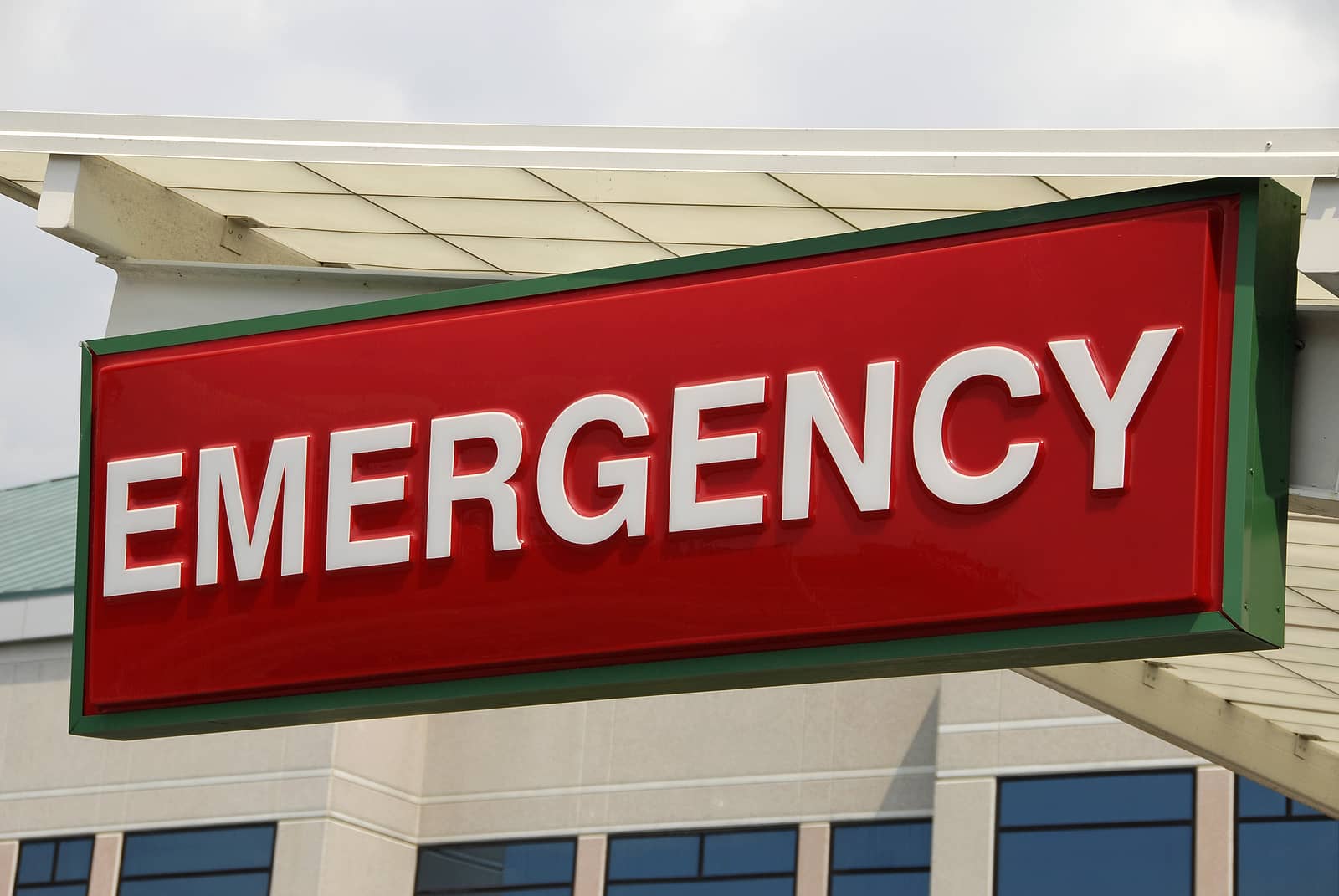
Your Medicare benefits cover emergency room visits and health care. However, that doesn’t mean these services are entirely free. To find out more about what your financial obligation may be, keep reading.
Table of contents
Does Medicare cover emergency room visits?
Once you get emergency room care, the first thing you will have to pay is your Medicare Part B deductible if you haven’t met it yet. Since the emergency room is covered under Medicare Part B, you’ll be responsible for the 20% coinsurance.
Medicare Part A is your hospital insurance for inpatient care. Suppose you have not received inpatient hospital care within the last 60 consecutive days. In that case, you will start a new benefit period on day one of your hospital stay.
After you check out of the hospital, you will begin a new benefit period if you can go another 60 days without inpatient care.
On day one of each new benefit period, you will have to pay your Medicare Part A deductible again. Still, you will not have to pay coinsurance until the 61st day of your stay.
Hospital Admission Out-of-Pocket Costs
If the emergency room physicians believe you need to be admitted to the hospital as an inpatient, here are the other charges you may have to pay out-of-pocket:
- Medicare Part A deductible of $1,632.
- $389 per day coinsurance if you stay in the hospital for 61 days or longer.
- $778 per day coinsurance if you wait for 91 days or longer
Not all ER visits result in an inpatient hospital stay. Even if they patch you up and send you home immediately, you might not receive inpatient services. This is called outpatient care if you are not admitted as an inpatient by a doctor.
As per the rules of Medicare Part B, you will be responsible for the 20% coinsurance cost for all services and care you receive. Your costs could be less if you enroll in a Medicare Supplement or a Medicare Advantage plan.
Medicare Advantage Costs in the Emergency Room
Medicare Advantage plans cover emergency room visits, and you aren’t required to use in-network hospitals for emergency care. However, each plan sets its cost terms, which can differ from Original Medicare. Review your summary of benefits to determine how much your out-of-pocket costs will be.
Medicare Supplement Costs in the Emergency Room
The most expensive gaps in Original Medicare coverage are in your Medicare Part A deductibles and your Medicare Part B coinsurance. Since there isn’t a cap on what you can spend, Medicare Supplement insurance protects you from these expenses. Depending on your letter plan, you could have 100% of your hospital visit covered with a Medigap plan.
FAQs
Does Medicare Part B cover emergency room visits?
Original Medicare Part B, which provides medical insurance, typically includes coverage for visits to the emergency room. Medicare Part B generally encompasses emergency department services, ensuring coverage for situations involving injuries, sudden illnesses, or rapidly deteriorating health conditions.
Which part of Medicare pays for hospital expenses?
Medicare Part A pays for your hospital expenses. Remember that it only pays for inpatient expenses. Suppose you get care at a hospital but aren’t admitted by a doctor as an inpatient. In that case, that will most likely be covered under Medicare Part B.
Does Medicare Part A cover 100% of hospital stays?
Unfortunately, no. The first $1,632 of the costs of your hospital stay will be paid out-of-pocket by you to cover your Part A deductible. After that, your total depends on where you are at in your benefit period.
If you are within your first 60 days, Medicare will cover 100% of your remaining costs. When you get past 60 days, more of the cost-share is shifted to you – and it gets even more expensive than that after 90 days.
Does Medicare Part A cover emergency room visits?
Original Medicare provides coverage for emergency room visits, with the specific coverage determined by whether you are admitted as an inpatient. Depending on the situation, either Part A or Part B coverage may apply. While you are responsible for a portion of the expenses for the services received, most of the costs are covered by Medicare.
What is the Medicare deductible for an emergency room visit?
Any inpatient hospital care you receive will require you to pay a $1,632 deductible at the beginning of your benefit period. This is true regardless of whether that care happens in the emergency room or elsewhere in the hospital.
What will my hospital expenses be with a high-deductible Medigap plan?
The Medigap deductible for Plan HDF or HDG is $2,740 and, therefore, higher than the Medicare Part A deductible for hospital services. The plan deductible is a calendar year deductible. You must meet the plan’s deductible before receiving coverage for out-of-pocket medical costs while at the hospital.
Does Medicare pay for urgent care visits?
Yes, but it pays for them with your Part B benefits. Most urgent care centers aren’t as well equipped or sophisticated as hospital emergency rooms, so they can only provide outpatient care and services.
How To Get Help With Your Emergency Room Costs Under Medicare
The easiest way to save money on your Medicare emergency room costs is to purchase the right supplement plan for you and your budget. And guess what? We can help!
We are connected to the best supplement providers in your area and can give you free rate quotes in a matter of minutes. Contact us today by phone or our online request form so that we can get you started saving money.
Related Content